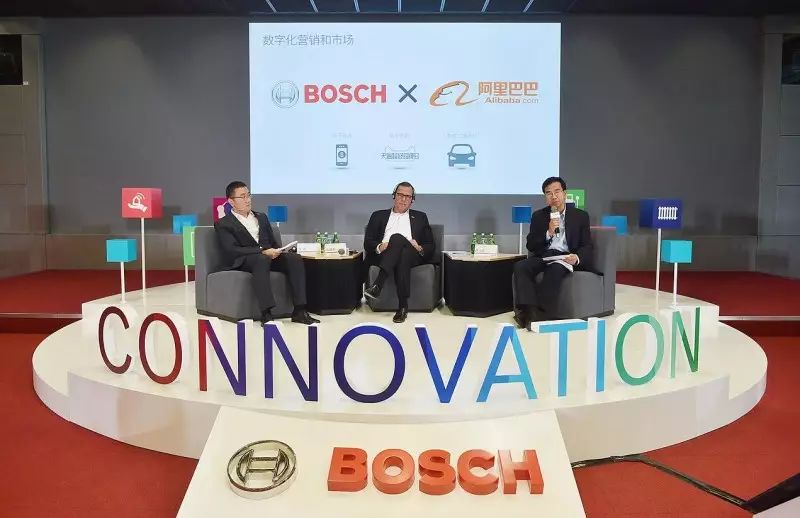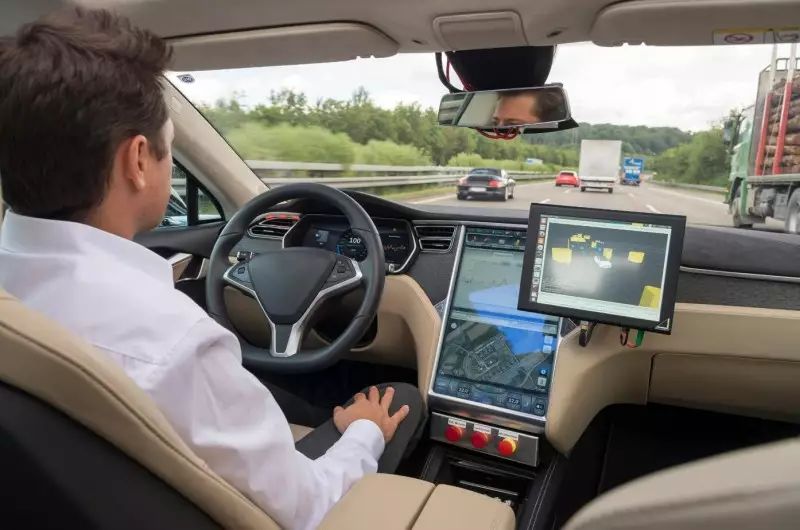While many companies are still struggling with performance, Bosch announced at a press conference in May 2017: In 2016, sales in China reached 91.5 billion yuan, a year-on-year increase of 19%. The Chinese market has become the fastest-growing market in Bosch’s global business, accounting for 28% of global sales. The strong performance in the Chinese market is attributed to the deep application of interconnected technologies, including the wave of vehicle intelligence, the prosperity of mobile internet, smart cities, and advancing Industry 4.0.

Bosch held a press conference in Shanghai titled “Creating Connected Experiences” to showcase innovative technologies that build the future of interconnected living.
Meanwhile, Bosch Group Chairman Volkmar Denner stated: “Good performance is the prerequisite and foundation for Bosch to maintain its leading position in the future. As an innovation leader, Bosch has always proactively grasped the situation and driven transformation. The focus is on smart transportation and the Internet of Things. By 2020, all new electronic products from the company will be interconnected. The key technology here is artificial intelligence. In the next five years, Bosch will invest 300 million euros to establish an artificial intelligence center.”
Considering that three-quarters of the sensors used in smartphones globally come from Bosch, a German company, it is evident that they are leveraging their leading edge in the sensor field to quickly shift the focus of the entire enterprise towards the interconnected world with more future potential. These sensors, called MEMS (Micro-Electro-Mechanical Systems), have been used in many industrial fields since the 1990s. After 2000, sensors have gradually optimized in size and functionality, evolving into different forms and functions, and increasingly penetrating various consumer electronics. For example, the accelerometer, gyroscope, geomagnetic sensor, barometric sensor, and environmental sensor that are essential in smartphones are all familiar to us.
In addition to their application in smartphones, sensors have significant application space in the automotive industry, wearable devices, smart driving, smart homes, and Industry 4.0. The total sales of 8 billion MEMS sensors also reflect Bosch’s technological advantages and the market’s trust in it.
Now, Bosch’s future strategy is very clear: “sensors, software, and services.” In a previous interview, Bosch China President Chen Yudong also stated that Bosch is transforming from a capital-intensive hardware technology company to a software and data service company.
To promote the development of the interconnected strategy, Bosch is fully prepared. In the past year, Bosch’s total R&D expenditure in China reached 5.6 billion yuan, with over 470 new registered patents. As of the end of 2016, Bosch employed nearly 59,000 people in China, of which more than 6,300 employees are engaged in R&D work, an increase of 14% compared to last year. Bosch’s central research institute has established an IoT R&D team in China consisting of 12 experts, focusing on R&D work in the IoT and related application fields.
As a global leader in automotive and smart technology supply, Bosch is also actively seeking and establishing partnerships with local partners in the field of connected transportation. In March of this year, it jointly launched an emergency call system for vehicles with domestic manufacturers to provide interconnected safety solutions for Chinese car owners. In April, Bosch announced a collaboration with three leading domestic map suppliers, Baidu, Gaode, and NavInfo, to jointly develop accurate positioning services suitable for domestic road conditions, thereby achieving stable positioning of autonomous vehicles in various complex environments.

Bosch actively collaborates with local enterprises, stepping into the era of connected autonomous driving.
Recently, Bosch conducted road tests on V2X communication technology with Huawei, a global leader in communication technology, in Germany, testing real-time data exchange between vehicles to prepare for connectivity and autonomous driving. This collaboration has also expanded to China, aiming to localize the development and testing of scenarios such as collision avoidance warnings and emergency braking under Chinese regulations and road conditions, thereby better serving the needs of the local market in China.
Among many consulting firms’ forecasts, the current global economy is experiencing relatively sluggish growth. However, Bosch’s investments in core technologies, as well as its layout in sensors, the Internet of Things, and artificial intelligence, may help it find the best solutions in the Chinese market to meet future market demands and create the next sales peak.